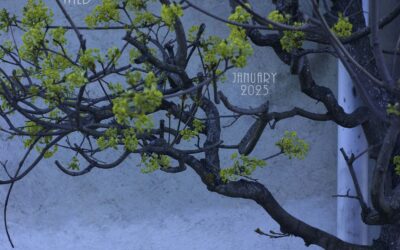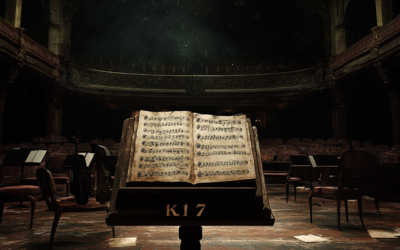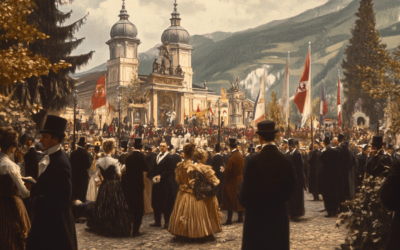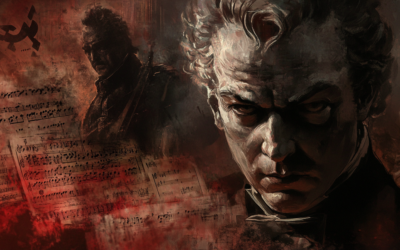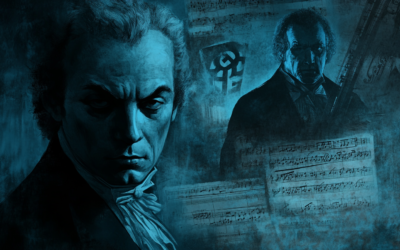The Myth of Mozart’s Sight-Reading Genius
A Closer Examination
In the 18th century, exaggerated accounts of Mozart’s abilities were as common as they were fantastical. Yet, detailed reports from figures like Daines Barrington and André Grétry reveal a far more human side of the prodigy, whose skills, impressive though they were, did not amount to the miraculous feats often attributed to him.
Mozart: The Fall of the Gods
This book offers a fresh and critical look at the life of Wolfgang Amadeus Mozart, challenging the myths that have surrounded him for centuries. We strip away the romanticised image of the “natural genius” and delve into the contradictions within Mozart’s extensive biographies. Backed by nearly 2,000 meticulously sourced citations, this work invites readers to explore a deeper, more complex understanding of Mozart. Perfect for those who wish to question the traditional narrative, this biography is a must-read for serious music lovers and historians.
"Even the most lauded prodigies sometimes hide a kernel of reality beneath layers of myth."
Mozart: The Fall of the Gods
Separating Fact from Fiction in 18th-Century Reports
In the concert posters promoting young Wolfgang Mozart, he was lauded as a prodigy capable of sight-reading even the most difficult pieces flawlessly. Such claims, often more fantastical than credible, warrant closer scrutiny. Two notable contemporary accounts diverge from the usual paternal praise or the laudatory articles seen in 18th-century newspapers. One is a scientific report from London, penned by Daines Barrington (1727–1800), a member of the Royal Society. The report, dating from June 1765, was finalized in 1769 and presented on February 15, 1770, a full five years after the original test.
Barrington was a multifaceted figure: a barrister, antiquarian, and naturalist with a penchant for ornithology and a fascination for musical prodigies. His book, a curious collection of studies ranging from the origins of turkeys to the melodiousness of birds, often employed flowery and exaggerated language. Perhaps Barrington’s fondness for child prodigies contributed to the surge in popularity of such marvels in England. He documented not only the Mozarts but also other youthful musicians like the Wesley brothers and William Crotch. Yet, his approach lacked scientific rigour, often relying on hearsay and questionable sources.
Barrington’s report on Mozart was no exception. In his experiment, he presented a manuscript duet, its composer unspecified, to test Mozart’s sight-reading skills. The piece was from Metastasio’s Demofoonte, arranged for two vocal parts and strings. Curiously, the vocal parts were written in the alto clef, which Barrington highlighted as if it were a major obstacle. Despite this build-up, Wolfgang executed the symphony introduction “masterfully,” as Barrington put it, then sang the upper vocal line while his father Leopold tackled the lower. Leopold faltered, eliciting disapproving looks from his son, who even corrected his mistakes. Barrington claimed that Wolfgang not only sang beautifully but also embellished the accompaniment with violin parts to enhance the musical effect.
A closer analysis reveals that the test was calibrated for both Mozarts, and Wolfgang, not surprisingly, outperformed his father. Stripping away the superlatives, we see that Wolfgang competently played the bass line with his left hand and added occasional violin parts with his right. Impressive for an eight-year-old, certainly, but not the miracle Barrington made it out to be. His comparison of the duet’s difficulty to reading ancient texts like Etruscan and Greek reveals his musical naivety. Instead of a supernatural feat, the performance was a well-practiced skill honed by Leopold to impress the general public.
Even more telling is a different account from André Ernest Modeste Grétry (1741–1813), a professional musician who tested Mozart in Geneva. When Leopold boasted of his son’s sight-reading prowess, Grétry composed a challenging sonata movement in B-flat major. Mozart played it, yet replaced several difficult passages with his own improvisations. The audience, except Grétry, was in awe. Grétry’s skepticism highlighted Wolfgang’s reliance on improvisation and lack of systematic study, a strategy that gave the illusion of mastery.
Mozart’s ability to read music, while exceptional for his age, fell short of true sight-reading as it’s defined today: a flawless, spontaneous execution of written music, requiring years of rigorous training and experience. Grétry’s observations dispel the myth of Mozart’s innate genius, pointing instead to his reliance on quick-thinking and a boldness typical of children.
You May Also Like
Constanze Mozart’s Enduring Love
Although some have doubted her devotion, Constanze’s own words and actions illustrate a widow deeply committed to preserving Mozart’s legacy. Diaries, personal correspondence, and eyewitness testimony all challenge the notion that she neglected his memory—while the circumstances around his burial grow ever more perplexing.
A Revealing New Interview on His Thematic Catalogue
We’re excited to present a brand-new interview that challenges many of the long-held assumptions about Mozart’s Thematic Catalogue (1784–1791). Conducted by Swedish journalist Henry Grynnsten, this conversation delves into groundbreaking forensic techniques—like advanced ink analysis and digital image processing—that may change the way we view Mozart’s late works.
The Rattling Symphony: A Critical Take on K. 17
Often attributed to Mozart, the K. 17 symphony is anything but refined. Lacking orchestration and filled with gaps, it raises more questions than answers about its true authorship.
The Hidden Origins of the Salzburg Festival: A Nationalist Dream
The Salzburg Festival, far from being a mere celebration of Mozart’s genius, was born out of nationalist ambitions during a turbulent period in Austro-German history. Conceived by figures like Max Reinhardt, Heinrich Damisch, and Friedrich Gehmacher, the festival was deeply rooted in ultranationalistic ideals, transforming Mozart’s legacy into a tool for cultural dominance. The truth behind its founding has long been obscured, but the primary sources tell a different, darker story.
Mozart, Wagner, and the Nazi Myth
The Führer’s admiration for Wagner’s racially charged ideology not only influenced the policies of the Nazi regime but also reshaped the legacy of Mozart. Under National Socialism, Mozart was not celebrated as a universal genius but as a symbol of German purity and superiority. His music, stripped of its international influence, was rebranded as an expression of Aryan identity, intended to unify and inspire the German people.
Mozart, the Anschluss, and Nazi Propaganda
Following the 1938 Anschluss, the Nazi regime rebranded Mozart as the quintessential German composer, using his image to promote unity between Austria and Germany. The Salzburg Festival became a platform for Nazi propaganda, distorting Mozart’s legacy to fit their nationalistic and racial agenda.



